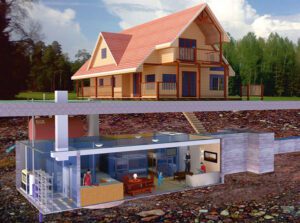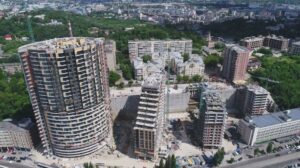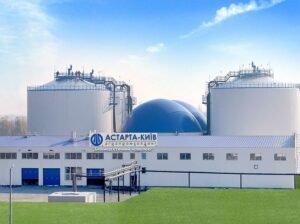Volume of construction products produced by type in of 2021 (mln UAH)

SSC of Ukraine

The construction of bomb shelters in new housing can be regulated at the legislative level, said Elena Shulyak, leader of the Servant of the People party.
“Will there be new buildings with bomb shelters? We plan to resolve this issue at the legislative level, with prescribed norms and rules. I’m sure this should become one of the requirements of users of such housing and premises,” the people’s deputy wrote on Facebook.
According to Shulyak, the role of bomb shelters can also be performed by specially designed fortified underground parking lots.
The People’s Deputy recalled that the Verkhovna Rada adopted in the first reading bill No. 7198, which provides for the restoration of housing destroyed by the occupiers at the expense of the state.
As reported, President of Ukraine Volodymyr Zelensky supported the idea of introducing a rule on mandatory shelters into state building codes.

Housing construction is resumed in Kyiv: the first project in the capital, where construction and installation work was resumed, was the New England residential complex.
According to the press service of the developer of the Royal House project, starting from April 5, 2022, the construction team in New England began work on the Lincoln house (5th stage of construction), work on other houses of the complex will gradually resume.

The new technology of prefabricated one-story residential buildings makes it possible to provide people with high-quality houses as quickly as possible.
Ruukki sandwich panels are used as load-bearing and envelope structures of houses, which allows to reduce the cost of construction due to the absence of the need to build a frame. At the same time, cottages become highly energy efficient (heat transfer resistance R = 7.43 m2K / W) and durable (lifetime is more than 50 years).
Rauta has developed several practical layouts for sandwich panel cottages ranging from 26 m2 to 139 m2. At the same time, layouts with an area of 26 m2 and 49 m2 can be placed in blocks with common partitions. This solution allows to further reduce the cost of construction, as well as to build settlements for people in dire need of housing as quickly as possible.
“The key goal of this project was to create reliable, functional and energy-efficient houses with the shortest possible construction time,” said Andriy Ozeychuk, Rauta director. “The ergonomics of the layouts are deliberate so that even in a house with an area of only 26 m2, a family of 3-4 people can live comfortably.”
BUILD, CONSTRUCTION, DEVELOPED, HOUSE, RAUTA, SANDWICH PANEL, TECHNOLOGY

Agroholding Astarta, the largest sugar producer in Ukraine, is investing $15 million in the construction of a new silo in the city of Chernihiv. The decision of the board of directors of the group of companies was published on the Warsaw Stock Exchange (WSE) on Wednesday evening.
According to Astarta, the construction of this facility will will further strengthen the company’s network of seven grain and oilseeds handling facilities and expand its reach to Chernihiv region.
The total capacity of simultaneous storage of grain and oilseeds will be 70,000 tonnes. Commissioning of the first stage of the silo with a capacity of 58,000 tonnes is scheduled for July 2022.
Astarta is a vertically integrated agro-industrial holding operating in eight regions of Ukraine.

The Austrian-based Head Group has received permission from the State Inspectorate for Architecture and Urban Planning of Ukraine to start the construction of the Head Vinnytsia plant on the territory of the Winter Sport industrial park, Andriy Ocheretny, the deputy mayor of Vinnytsia, said on Facebook.
“The completion of construction of the plant and commissioning of production facilities is scheduled for December 2022. The company plans to invest about EUR80 million in the creation of production, administrative and storage facilities,” he said.
The deputy mayor clarified that since May 12, 2021, preparatory work on the land plot continued at the site: more than 100,000 cubic meters of fertile soil layer were removed, reinforced concrete supports were installed for laying a cable power line, temporary connection networks from the substation were installed.
According to the project, the building of the plant will consist of production and storage facilities, an administrative building, a sewing workshop. The production building will house workshops for the manufacture of skis, boots and bindings, as well as warehouses for raw materials and finished products.
The total area of production premises after the commissioning of the enterprise in 2023 will be 43,000 square meters.
Ocheretny noted that, as expected, this plant will be one of the largest Head Group plants in the world and will provide jobs for more than 1,200 residents of Vinnytsia.
As reported, the total area of the Winter Sport industrial park is 25 hectares. The start of construction of the plant took place in May 2021.
Head International Holding GmbH manufactures sports equipment for winter sports, tennis and scuba diving. The company’s production facilities are located in Austria, the Czech Republic, Bulgaria, China. The company is present in 85 countries around the world.